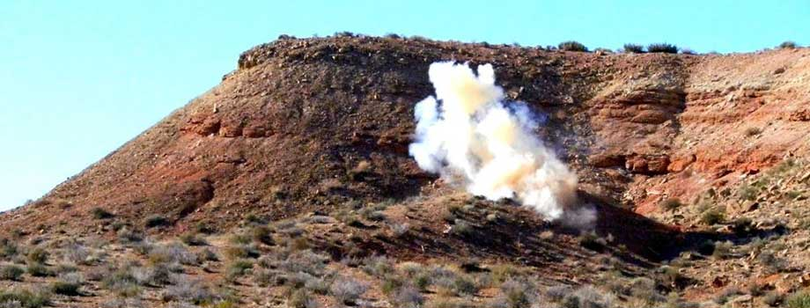Feds bill shooter $168K for fire ignited by exploding target

PUBLIC LANDS -- The federal government said today it is collecting $168,500 to cover fire suppression costs after an Illinois man ignited a 440-acre blaze in central Idaho in 2012 while shooting at an exploding target.
According to a story by the Associated Press, the U.S. Attorney’s Office announced the agreement after Jeffrey Kerner was target shooting on Aug. 18, 2012 on private land near Salmon in Lemhi County. As temperatures hit 95 degrees, prosecutors say Kerner’s target blew apart and ignited the blaze that later spread to adjacent federal land.
- This is one of several cases that prompted some national forests in 2013 to ban the use of exploding targets, as I reported in several stories this summer.
Assistant U.S. Attorney Amy Howe in Boise said the settlement in the Idaho case was reached after negotiations with an insurance adjustment company representing Kerner.
Though the fire was relatively small at less than a square mile and was contained within 48 hours, costs quickly escalated as federal firefighters arrived in force to keep the flames from consuming at least two nearby homes.
Howe said the incident — during high summer, when temperatures were climbing — underscores the danger of shooting at exploding targets that produce a large cloud of smoke when struck by a bullet. Federal and state agencies across the West have enacted a patchwork of regulations designed to limit or ban exploding targets on public land, though there’s little uniformity.
Read on for more more of the story from the AP.
“We have an inordinate number of fires all around the West from these exploding targets,” Howe said. “A lot of these fires start on private land and spread to public land, which is what happened here.”
The money will be paid into the coffers of the Bureau of Land Management and the U.S. Forest Service, to reimburse them for their costs of fighting what became known as the “Tenmile Blaze.”
Kerner, listed on his website as a career coach from Wadsworth, Ill., didn’t immediately return a phone call on Thursday.
Amid what was a tough fire season this summer, the Forest Service moved in August to ban exploding targets from public land in five states —Colorado, Wyoming, Kansas, Nebraska and South Dakota — on grounds that their incendiary properties caused at least 16 wildfires since 2012.
Meanwhile, regional foresters in Washington and Oregon have banned exploding targets year-round, a prohibition that’s slated to last until at least next year. That’s as Washington state legislators in 2009 enacted a year-round ban on exploding targets and tracer ammunition on state-managed lands.
And the BLM, which oversees 264 million acres of public lands in the West in 12 states, has varying regulations for target shooters who use exploding targets.
In Oregon or Washington, anybody who shoots at an exploding target on BLM land faces a $1,000 fine and a year in prison, according to a ban enacted in June.
In Idaho, exploding targets are forbidden on public lands from May 10 to October 10, according to a state law.
Though the agreement announced Thursday in Idaho with Kerner was reached without a lawsuit, other cases where exploding targets have caused fires have resulted in criminal charges.
Last February, for instance, two Washington state target shooters who started a fire in Utah in June 2012 that cost $2 million to suppress pleaded no contest in state court to using an exploding target, in violation of a county ordinance that banned the use of them and were hit with a $10,000 fine.
